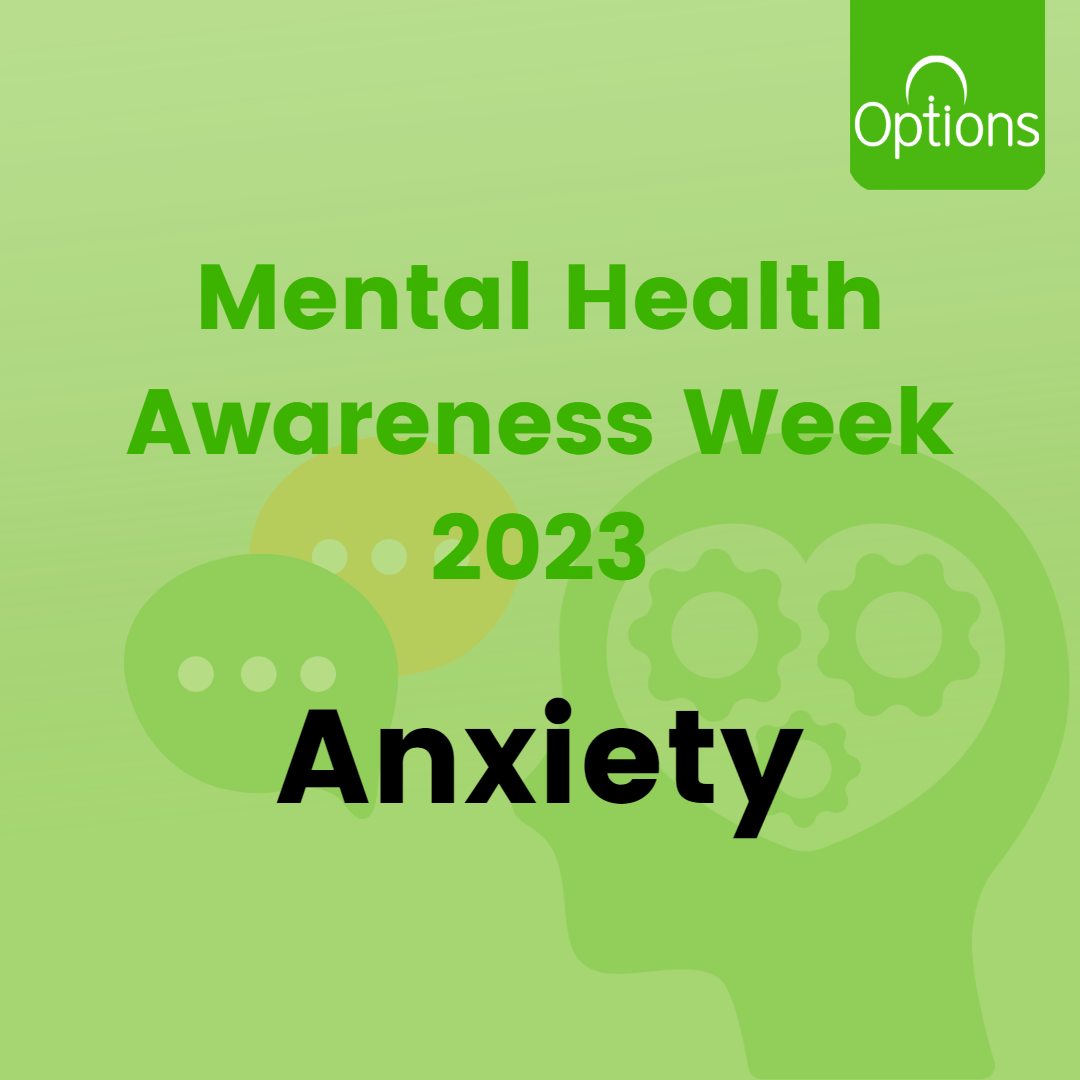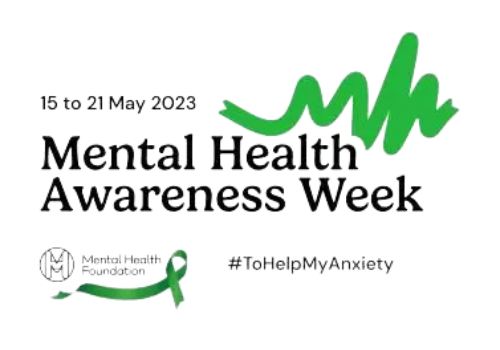
Anxiety is a normal emotion in us all, but sometimes it can get out of control and become a mental health problem.
Lots of things can lead to feelings of anxiety, such as work pressures, traumatic life events such as loss of loved ones, family pressures and relationships. We can also get anxious when it comes to things to do with money and not being able to meet our basic needs, like heating our home or buying food.
Anxiety is one of the most common mental health problems we can face. In recent mental health surveys carried out by the Mental Health Foundation one in four adults said they felt so anxious that it stopped them from doing the things they wanted to do in life and six in ten of those adults, said they felt this way at least some of the time.
On a positive note, with the right information and tools, anxiety can be identified a lot sooner and made easier to manage. So, here at Options, we will be taking part of this year’s Mental Health Awareness Week (15th – 21st May)
With a focus on this year’s theme of “Anxiety”, we want to increase awareness and understanding of anxiety itself and we will be sharing real stories from the people we support and staff on how they manage their anxiety.
We’ll share some tips and advice on managing financial wellbeing in the light of the real cost of living crisis we are currently facing and hopefully create a space where we can have an open and honest conversation about being anxious and share how you manage anxiety yourself.
Over the coming week, we will be posting and blogging about the suggestions below on how you can cope with managing the feelings of anxiety.
- Get Moving – Exercise is a good way of dealing with anxiety and this week we will hear stories on how running and yoga have helped Peter and Krista with their mental health.
- Spend time in nature – We know that spending time in nature has a positive impact on our mental health. It can help us feel calmer and less stressed. This week we will be following Options’ Walking & Photography group and highlighting how immersing themselves in nature has supported their mental health.
- Connect with people and talk about how you feel – Anxiety can feel very lonely, so connecting with other people can help a lot. Spending time with friends or meeting other people through activities such as volunteering, sport or social clubs, or peer support groups is a great way to make connections. If you’re able to talk to people about how you feel, it can really help to reduce your anxiety. Sometimes saying what’s worrying you out loud can take away its power over you. We will be sharing how our Mental Health Champions are increasing connections for our staff to have well-being conversations.
- Get support for money worries – A common cause of anxiety is money. If you’re worried about not being able to pay bills, are struggling to repay debt, or aren’t sure if you can cover your living costs, please seek help. During this week we will be sharing guidance on understanding the cost-of-living crisis with top tips on how to improve your financial wellbeing. Shopping hacks, smart cooking, energy saving and where to go for more help if you need it.
- Try to get some quality sleep and rest – Resting and having a good night’s sleep is hard when your head is full of worries, but there are some things that can help. We will be sharing some tips and advice on how we can improve our sleep and help improve anxiety.
- Try to eat a healthy diet – For many of us, feeling anxious might cause us to reach for sugary snacks, junk food or alcohol. It’s important that we don’t turn to unhealthy foods or drinks as a way to cope as they will do more damage to our health in the longer term. It also important that we try and avoid smoking or taking recreational drugs as a way of coping.


Want to report an error?
Although every care is taken to ensure accuracy, we realise that from time-to-time errors can occur.
To make a report please contact us at Welcome@ofsl.org.uk